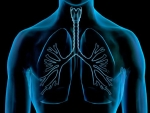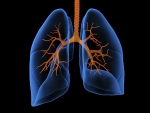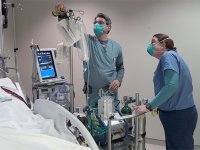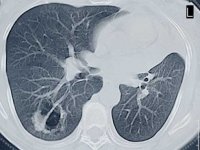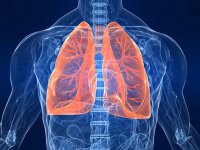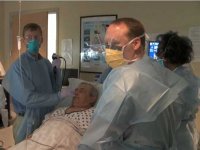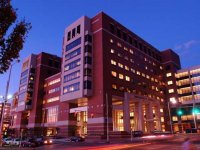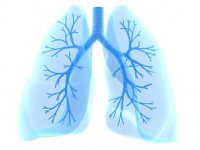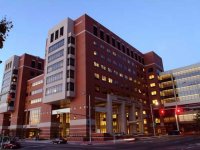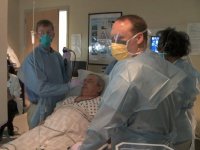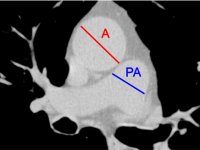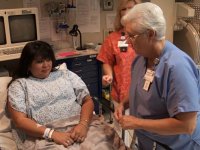Displaying items by tag: division of pulmonary allergy and critical care medicine
 ECMO, or extra corporeal membrane oxygenation, takes on the function of the heart and lungs by routing the patient’s blood into the machine where carbon dioxide is removed and oxygen is added.
ECMO, or extra corporeal membrane oxygenation, takes on the function of the heart and lungs by routing the patient’s blood into the machine where carbon dioxide is removed and oxygen is added. UAB investigators have found a new pathway that contributes to an often fatal lung disease with no cure and no effective treatments, and possibly a way to shut that pathway down.
UAB treated the first patient in the nation in an experimental lung reduction procedure for emphysema.
The latest edition of Best Doctors in America ® recognizes 325 UAB physicians — voted by their peers as the best.
- awards and honors
- school of medicine
- uab medicine
- division of cardiovascular disease
- division of gastroenterology and hepatology
- division of endocrinology diabetes and metabolism
- department of dermatology
- department of anesthesiology and perioperative medicine
- division of pulmonary allergy and critical care medicine
- department of medicine
- division of gerontology geriatrics and palliative care
CT scans can help physicians predict which COPD patients are likely to take a turn for the worse, say UAB researchers.
A new drug that improves lung function for some patients with cystic fibrosis may also help treat smokers with the incurable lung disease COPD.
The Program in Environmental and Translational Medicine combines clinical care with research to prevent, treat diseases caused from air pollution, water contamination, other causes.
UAB doctors can now employ a new procedure, using thermal energy, to open constricted airways in patients whose severe asthma is not controlled by medication.
